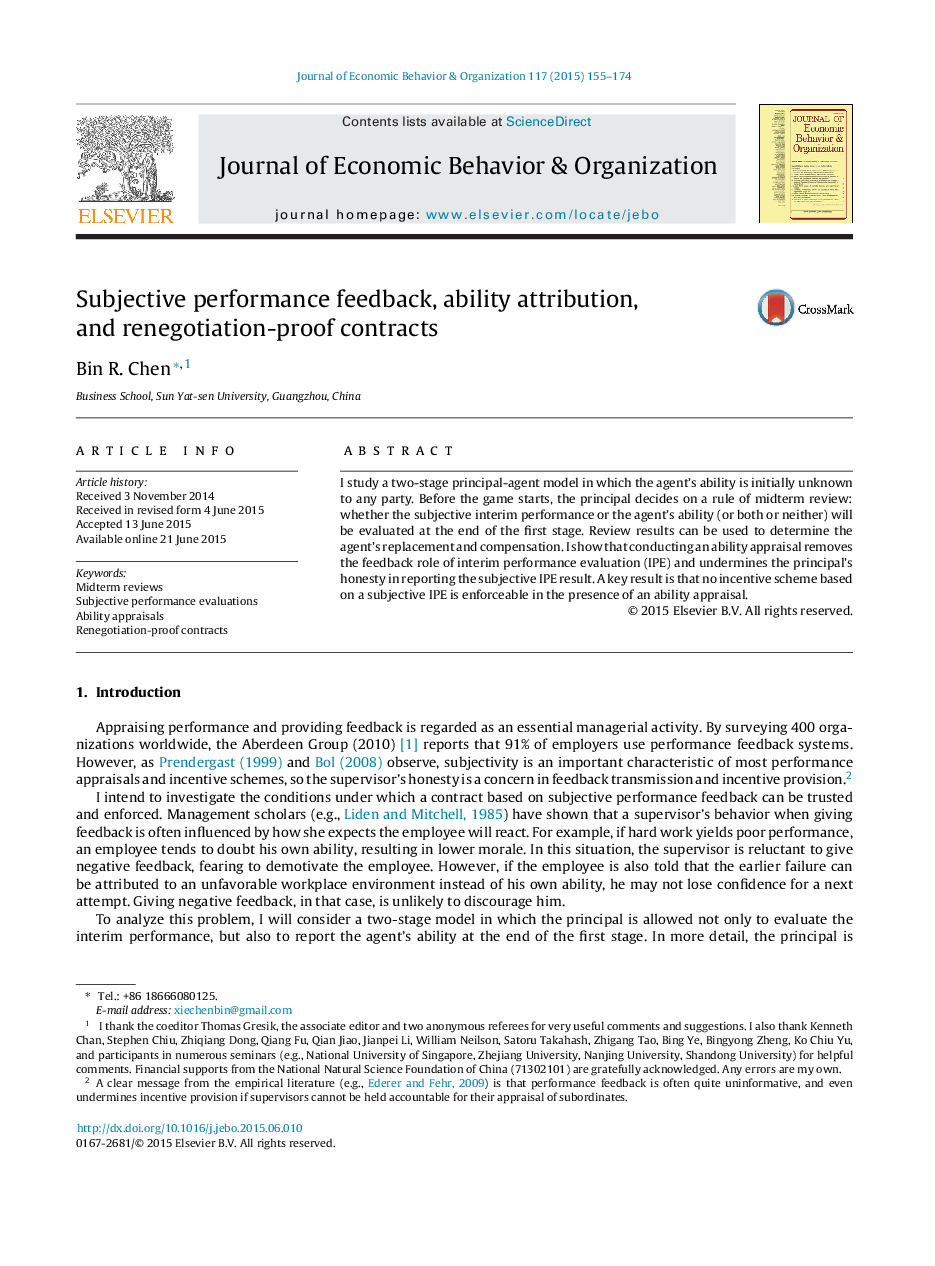| Article ID | Journal | Published Year | Pages | File Type |
|---|---|---|---|---|
| 7243053 | Journal of Economic Behavior & Organization | 2015 | 20 Pages |
Abstract
I study a two-stage principal-agent model in which the agent's ability is initially unknown to any party. Before the game starts, the principal decides on a rule of midterm review: whether the subjective interim performance or the agent's ability (or both or neither) will be evaluated at the end of the first stage. Review results can be used to determine the agent's replacement and compensation. I show that conducting an ability appraisal removes the feedback role of interim performance evaluation (IPE) and undermines the principal's honesty in reporting the subjective IPE result. A key result is that no incentive scheme based on a subjective IPE is enforceable in the presence of an ability appraisal.
Related Topics
Social Sciences and Humanities
Economics, Econometrics and Finance
Economics and Econometrics
Authors
Bin R. Chen,
